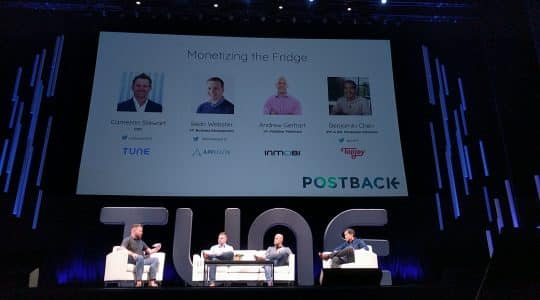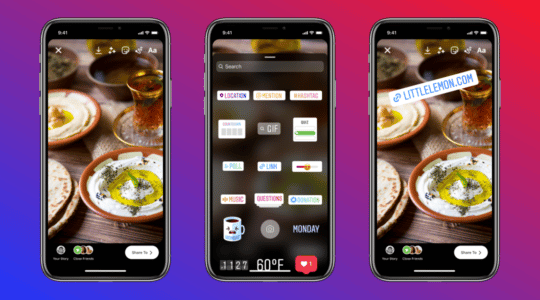Welcome to the newest installment of App Marketing Conversations. In this episode our CEO, Ian Sefferman (@iseff), talks about how his predictions for 2014 played out. He is joined by Ryan Morel (@ryanmorel) of Gamehouse (@ghpartners) and Robi Ganguly (@rganguly) of Apptentive (@apptentive).
Transcription
Ian: Hello and welcome to another Ad Marketing Conversations. I’m Ian Sefferman MobileDevHQ by Tune, here with Ryan Morel of GameHouse, Robi Ganguly of Apptentive. We are doing some look-back, look-forward type posts where were recapping predictions that we made in early 2014 and also related to that, making new predictions for 2015. You can make sure to check out all of those. Looking back at what we predicted on the ASO front in 2014, there were really two themes that came out of that video, which we’ll make sure to link to on the page.
The first is there would be a convergence of web and mobile meaning really that you would see no difference between a native app and a mobile web and how you access things and that all of that would come together. The second big theme that we talked about was, I think, we said it very succinctly in there, that we never have to ask the question again of “HTML 5” or “native?” Let’s take the second one first. Do you think we continue to ask that question in 2014?
Robi: So, I think people asked the question and talked about it but I don’t think anyone is really serious about their app business quality was talking about it anymore. I felt like they had really moved to, “Okay, we know. We’ve got to do it native. The experience is just not that good.”
Ian: Specifically, what do you think the merits of HTML5 continue to be?
Ryan: The best thing obviously is that you don’t have to deal with the various operating systems. There continues to be issues with the different operating systems, not only on Android, but also we see some issues with iOS recently with the size of the iOS 8 install. So, you have to deal with some of that stuff, when you’re developing natively, which you don’t with HTML5. However, I think it is really clear at this point that it’s going to take a paradigm shift of some kind to make HTML5 the programming language of choice, not only for developers but also for consumers to consume content.
Ian: I generally agree with both of you guys. It feels like maybe we’ve got a weakly correct, but not strongly correct there and that the conversation continued to happen, but most of the top players figured that piece out.
Ryan: I think we should add one, because I think there’s an interesting conversation here. This is really around how to consume content as a front end. What language should be used to enable consumers to consume content. When the open web is really about the transfer of data between two [inaudible 00:03:11] systems, so I think everything from an app perspective, apps have always been thought of as this closed eco-system and this closed thing, when in reality over the last year we saw a ton of APIs and a really focus from Google and Apple, especially on how to give apps and content access continually to the web and all the different contexts of where they are; so like location, time, weather, etcetera, to just make them better experiences.
Ian: I think that’s a great segue way into that first theme of the convergence of web and mobile. I think we saw things like Google App indexing started to take hold, a little bit larger adoption. Facebook AdLinks was there. That became important. There are companies being funded, URX was funded by Excel, it was focused solely on that deep-linking aspect of the world. Quick [inaudible 00:04:06], as a search engine, is focused on search within apps that they can then expose more broadly. Spotlight search, iOS 8 has the web and apps mingled together. So, taking all that data, do you think we were right about the convergence of web and mobile?
Robi: I think we were overly optimistic. I think there’s a lot of great points, even in my own daily, personal use I get the emails from LinkedIn, and then I click on it and I would like to open up the LinkedIn app and instead I get the LinkedIn mobile landing page.
Ryan: And it asks you to log in. It’s a nightmare.
Robi: It drives me nuts. I don’t think it’s truly, really converged. I think people are doing a better job but we’ve got a ways to go for that to work really seamlessly.
Ian: I agree with that completely, do you?
Ryan: Yeah. I agree. It’s getting a lot better though. I, especially, am a big fan of Spotlight search. I think I’ve said this, we’ve probably talked about this before, about how I think it’s Apple’s underhanded shot at Google. Because I don’t know about how you use your iOS device.
Ian: I use Spotlight all the time.
Ryan: All the time. I have no idea where any of my apps are other than like.
Ian: I have actually gone so far as the picture in my background is more important to me than the icons on my home screen, so I’ve been thinking about basically getting rid of all except for the home row on my first screen and just Spotlight search as my primary one and then I get to see the picture.
Ryan: I would say the only thing I don’t like about it is it’s somewhat inconsistent in terms of what it returns. They do do a good job though if I’m looking for a phone number or even a place. Spotlight search will bring up maps and that’s pretty cool.
Ian: I’m going to go out on a limb and say that we may have done the worst on the ASO predictions of any of the three of us.
Ryan: So, what do you think? Has ASO gotten a lot better in the last year, forgetting about the convergence of web and mobile?
Ian: I’m not convinced that AOS got an order of magnitude better in terms of the opportunities for marketers, it got an order of magnitude or more better in terms of the adoption by marketers. I think that we still have a long way to go there and I think that convergence will help a lot and I do believe that that’s still coming, just at a slower pace than I expected it to.
Ryan: And what about from a platform perspective? Do they do as much as you thought they would to improve search in app stores?
Ian: Google is leading the way by far. Yeah. Google is doing a much better job than Apple. Apple is sort of showing that they want to do stuff there but not actually implementing on it or executing on it. It’s still a little bit of vaporware in my opinion.
Robi: It’s not a week that goes by without one of the developers I follow on Twitter posting a screen shot of some stupid search results that they’re seeing in the app store. And that doesn’t seem to happen on Google very often.
Ian: I agree. So, I would give us maybe a 40% on this one. And we’re losing money at the casino on 40% odds. But the flip-side to that is in technology, big businesses are built and venture returns are all made from one out of ten companies, so maybe we need to be actually reaching a little bit higher.
Robi: I also thought you mean probably most ambitious prediction in here was when we were talking about the convergence.
Ian: Yeah.
Robi: That’s something we would like, but that obviously requires a lot to move.
Ryan: I would almost say that despite the fact that a lot has changed, we don’t seem to be in a dramatically different place than we were a year ago. But is that normal or no? If we look back five years, it’s way different, but year to year doesn’t seem to happen.
Ian: You’ve got to wonder if we’re the frogs sitting in the pot of water that’s about to boil. We can’t notice that it’s getting really hot. All right. On that note, as we’re about to try to jump out, make sure to watch the other recaps as well as the other predictions for 2015. Thanks.
Author
Becky is the Senior Content Marketing Manager at TUNE. Before TUNE, she handled content strategy and marketing communications at several tech startups in the Bay Area. Becky received her bachelor's degree in English from Wake Forest University. After a decade in San Francisco and Seattle, she has returned home to Charleston, SC, where you can find her strolling through Hampton Park with her pup and enjoying the simple things between adventures with friends and family.




Leave a Reply
You must be logged in to post a comment.